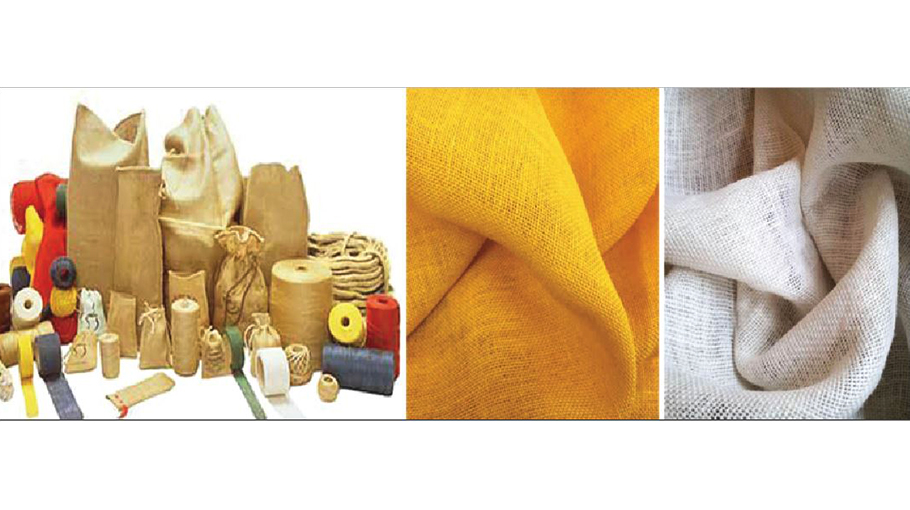Jute prospects blighted
Modernisation, diversification of use yet to be made

The invention of Sonali bag from jute in Bangladesh caused quite a stir at home and abroad. This bag could provide a solution to the world’s plastic waste problem that is jeopardizing environment.
Nevertheless, the country has not yet been able to reap the benefits of this invention.
In fact, the exciting prospects of jute have not yet been used fully and the modernization and diversification of jute goods are yet to be made.
According to experts, 410 million poly-bags are used in Dhaka city only per month and only 10-15 percent of the bags are thrown into trashcans. Most of these end up in drains, sewage pipes chocking them, and open places and cause water-logging.
Dr Mubarak Ahmad Khan, scientific adviser to Bangladesh Jute Mills Corporation (BJMC) invented the Sonali bag (biodegradable polybag) in 2015.
Talking to the Bangladesh Post the scientist said that he was present at the 2002 meeting where the decision to ban plastic in Bangladesh was taken.
“I was against the decision since the ban would not be effective as long as we do not have an alternative to it,” he said.
After a decade of hard work, he discovered Sonali bag.
When asked about the latest progress on the development of his invention, he said, “The pilot project of Sonali bag was undertaken in 2017. At that time no other company in the world had the equipment or machinery needed to produce this eco-friendly bag on a large scale.”
During the two years of the pandemic, the types of machinery required to produce Sonali bag was developed in the country which is capable of producing one tonne of bags per day if the machines run for 24 hours, he added.
He further mentioned that a similar machine has been ordered from a foreign company.
“A Chinese company is working to make a similar machine according to our demand which will be able to produce 60 bags per minute. Once the machine arrives, hopefully, we will be able to meet the demand to a great extent,” he said.
Regarding the demand he said that this bag has a huge demand in local and international market.
“At present many organizations have expressed their interests in placing orders but we are not being able to provide the bags in large quantities due to the shortage in production,” he said.
Regarding the delay in commercial production of these bags on a large scale, he said that disposable products worth about three and a half-trillion dollars are used in the world every year.
“It is not easy to introduce an alternative to polythene in this market. Moreover, it takes time to market a brand new invention,” he said.
Another potential jute project, Jute-Tea pilot project of BJMC, is also at a standstill at present.
HM Ismail Khan, jute tea project adviser of BJMC and an inventor of jute tea, told the Bangladesh Post that his organization Warsi Aqua Agrotech started producing jute tea in 2016.
He said that his organization was provided with a stall under BJMC at a fair soon after he started producing jute tea. A German team at the fair liked the tea very much and proposed to order in large quantities.
“After six months we started exporting jute tea in Germany. Later, the jute ministry brought this initiative under government supervision and I joined BJMC as an adviser to the jute tea project,” he said.
He mentioned that the pilot jute tea project worth Tk 90 million began in 2017.
“The project was stopped abruptly in 2020 and it was proposed that the project would start at a large scale at a cost of TK 250 million. However, the draft proposal is yet to get approval,” he said.
Md Mainul Hoque, Director (PMI) of Jute Diversification Promotion Center (JDPC) told the Bangladesh Post, “Jute tea has a huge demand due to its health benefits. However, we never have enough jute tea in our stock due to the scarcity of production.”
However, HM Ismail Khan said that the jute tea available at JDPC at present is not produced by BJMC and there is doubt regarding its quality.
Md Abdur Rauf, Secretary of the Ministry of Textiles and Jute and former Chairman of BJMC told the Bangladesh Post, “The projects of Sonali bag and jute tea are still at the research level. Their production for business purposes has not started yet. The government is investing for the development of the products.”
He further said that a proposal had been sent to the ministry for the second phase of the jute tea project worth Tk 250 million.
“The project will start once the draft proposal gets the nod,” he said.




